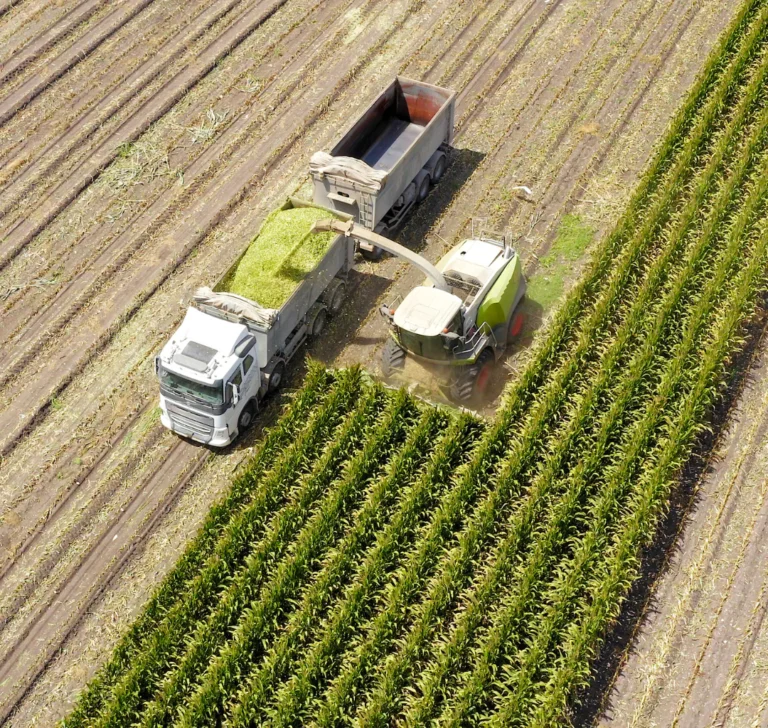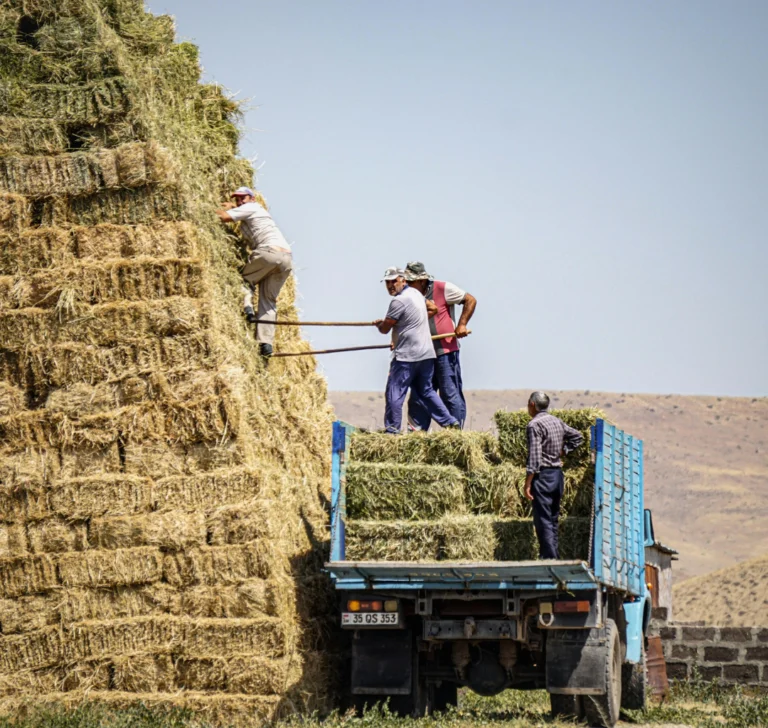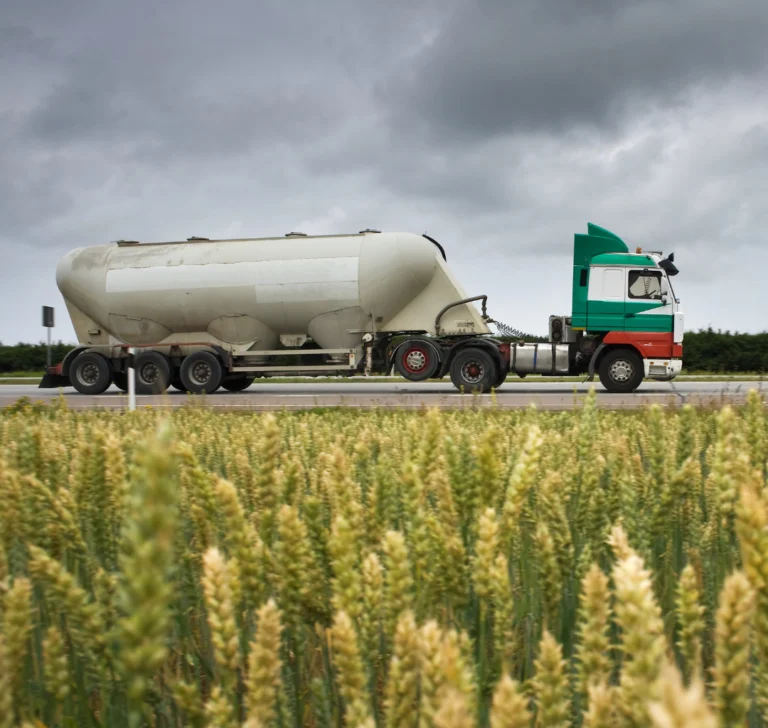The agricultural industry relies heavily on an efficient transportation system to ensure smooth operation.
The agricultural industry deeply relies on an efficient transportation system to ensure that agricultural products reach from the field to the consumer’s table, whether over short or long distances. This logistical component enables farmers to invest with confidence, increase their production, and access international markets.
Without efficient transportation, the development of agricultural enterprises is limited. Perishable, bulky, and delicate products like fruits, vegetables, or dairy require specific conditions to avoid spoilage, which directly impacts quality, producers’ profits, and customer satisfaction.

Types of trailers used in agricultural transport
Agriculture presents different needs, especially when it comes to transportation. To meet these needs, road freight transport uses three main types of trailers and trucks. These are:
Reefers – This type of trailer is designed, as its name suggests, to control temperature conditions. They are essential to preserve the freshness and safety of perishable products, using polyurethane foam insulation to keep the internal temperature stable.
Flatbed trailers – This open trailer variation is ideal for transporting large or heavy agricultural goods. This includes machinery, tractors, or hay bales. They are essential for agricultural operations.
Dry van trailers – Although externally similar to reefers, they lack temperature control. They protect products from external conditions and are widely used due to their low cost and efficiency in transporting dry and non-perishable goods.

Challenges of agricultural transport
Despite its great importance in the supply chain, agricultural transport faces several challenges that impact its efficiency and profitability. In many rural areas, poor road infrastructure increases travel times and the risk of product loss during transport. Additionally, high logistical costs—driven by fuel prices and resource shortages—negatively affect farmers’ profitability.
Another significant challenge is product waste. The lack of adequate storage and transport facilities, especially in warm climates, accelerates the spoilage of agricultural products. Added to this is the seasonal variability in production, which creates peaks and valleys in the demand for logistics services, further complicating transport planning.
Lastly, limited technology in many developing countries exacerbates the situation. However, the sector is moving towards more efficient logistics. Investments in infrastructure, the use of advanced technologies, and innovative solutions like digital platforms are helping overcome obstacles and improve the agricultural value chain.

In the future, with greater technological adoption, better rural roads, and more reliable logistics services, the agricultural industry will be able to operate more efficiently, profitably, and sustainably. This will not only boost farmers’ productivity but also ensure continued and affordable access to quality food for consumers.

The best roadside attractions for truckers in the U.S.
America’s highways hide unique places that break up the routine, don’t hesitate to check out these roadside attractions along the way. The road is much

The trucker style: comfort, function, and identity
Truckers’ style is much more than workwear; it’s an identity. These are the most commonly worn garments among truckers. Truckers’ style is much more than

Chaos on Highway 61: Viral Wrong-Way Truck Video Reignites the CDL Debate
An 80-ton tractor-trailer traveling miles in the wrong direction on Missouri’s Highway 61 has reignited a nationwide debate over Commercial Driver’s License (CDL) standards, training

How technology affects driver retention
Friend or foe? 52% of drivers say technology directly influences their decision to stay with or leave a fleet. Fleet telematics company Platform Science published

Dalilah Law seeks to remove non-english speaking commercial drivers
President Donald Trump proposed the “Dalilah Law,” an initiative aimed at prohibiting undocumented immigrants from obtaining commercial driver’s licenses. On February 24, President Donald Trump

FORMULA 1 and the AI That Could Transform Transportation in the U.S.
The artificial intelligence system that Formula 1 implemented to monitor every car on every turn is opening the door to new applications in trucking, logistics,
